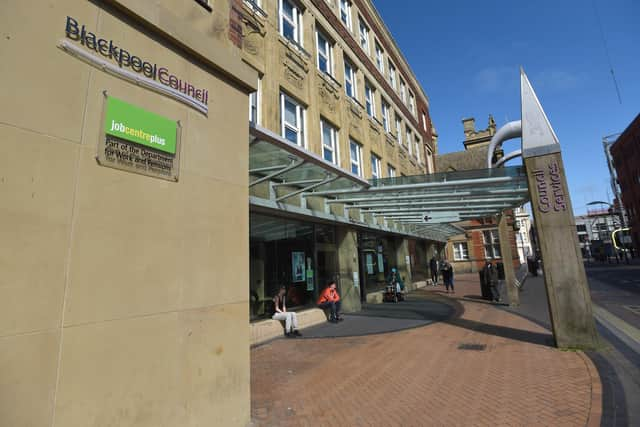Real term pay falls, but fewer in Lancashire are claiming work related benefits, new official figures show
and live on Freeview channel 276
The Office for National Statistics said regular pay excluding bonuses tumbled 1.8 per cent in the three months to February when taking soaring inflation into account.
The latest ONS data revealed the unemployment rate fell further below levels seen before the pandemic struck, at 3.8 per cent in the three months to February – the lowest since December 2019 and down from 3.9 per cent in the previous three-months.
Advertisement
Hide AdAdvertisement
Hide AdAcross Lancashire this was reflected in the fall in the number of people claiming work-related benefits such as Universal Credit.


In the Blackpool North and Cleveleys constituency, 3,070 people were claiming benefits in March, down 3.2 per cent on the same month last year, while in Blackpool South there were 4,525, down 4.3 per cent on 2021.
In Preston there were 3,920 people claiming support, down 2.5 per cent on March 2021, in Chorley there were 1,990 claimants, down 1.9 per cent, in Fylde there were 1,570, down 2 per cent and in Lancaster and Fleetwood there were 2,025 claiming, down 1.3 per cent.
The Ribble Valley had 1,305 claiming, down 1.4 per cent, South Ribble had 1,365 claimants, down 1.5 per cent and Wyre and Preston North had 1,030 claiming, down 1.5 per cent on March last year.
Advertisement
Hide AdAdvertisement
Hide AdThe ONS said real pay was now “falling noticeably”, with figures for February alone showing regular wages dropped 2.1 per cent after inflation, which was the biggest drop since August 2013.
